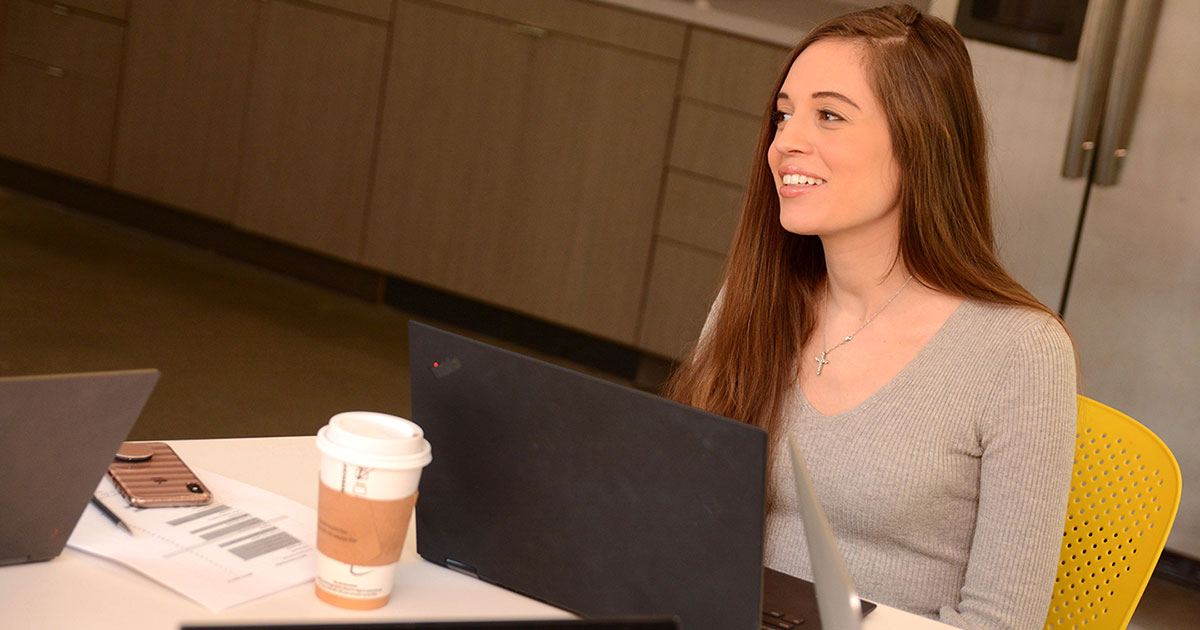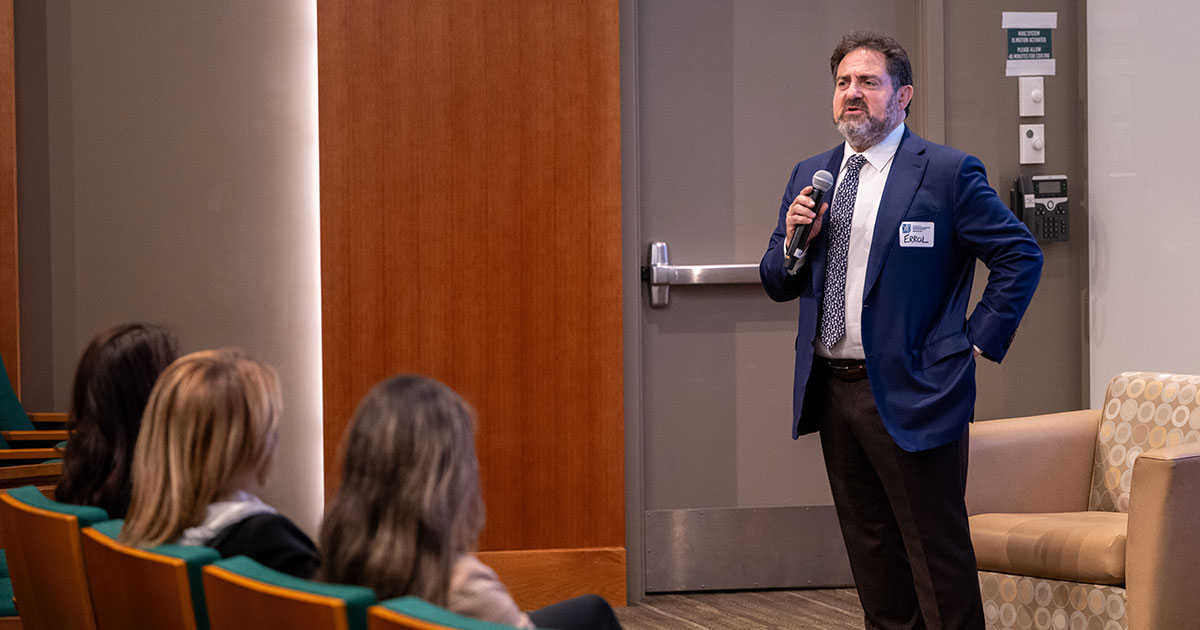Embracing an Agile Mindset

Scrum master, sprint review, backlog refinement, user stories, planning poker.
When Kristina Feasey MBA’21 began to institute agile project management in her full-time role with Babson’s College Marketing department last year, she needed to learn and then teach a whole new language.
“There’s all these technical words, agile jargon,” Feasey said. “So, when we’re all saying these words, people who weren’t working that way just thought that we sounded like a bunch of kooks.”
The results, though, have turned skeptical marketers into practicing entrepreneurs.
Feasey, manager of strategic business operations in College Marketing, not only mastered the language, but she also embraced and embodied an agile mindset—in the classroom, in the workplace, and in life.
Feasey, completing her final classes this summer, has juggled being a part-time MBA student while working full time on campus, raising a toddler, and expecting her second child this summer.
“It’s definitely one of the most challenging things I’ve ever done personally,” Feasey said of earning her MBA. “I’m really proud of that. I feel really good about the accomplishment. I worked for it, and I’m glad I worked for it because it makes me feel good about myself that I didn’t give up.”
Popularity of Agile
Embracing an agile mindset not only allowed Feasey to earn her graduate degree, but it also empowered her to implement dramatic change in her organization with agile project management.
Agile has been growing in popularity beyond its origins in software development—even in a creative department such as marketing. According to the recently released 14th annual State of Agile Report, only 27% of survey respondents worked in technology. Financial services, professional services, insurance, government, and health care and pharmaceuticals were the next most popular industries now practicing agile.
Simply put, agile project management breaks larger projects into deliverables every two weeks, or “sprints,” while constantly reviewing and reiterating. It’s a change from traditional “waterfall” management, in which projects don’t produce a tangible result until being fully planned, developed, integrated, tested, and deployed.
“Babson is asking us as an organization supporting the College to be our best selves and do the best work that we can, and agile is allowing our team to do that.”
Kristina Feasey MBA'21, strategic business operations, College Marketing
“Definitely people were skeptical at first,” said Feasey, who currently serves as scrum master for two of the four College Marketing agile teams. “They didn’t see how it could apply … because it’s so deeply rooted in software and IT.”
Babson’s Information Technology Services Division (ITSD) introduced agile methodology to the College two years ago and used it successfully in projects it was working on with College Marketing, which discovered it also applied quite well to its work. Individuals working in their teams—with names such as Newshounds and Beaver BelieverZ—are given autonomy to determine the best way to accomplish the task at hand. Utilizing an agile mindset, the team works together to regularly review work, to embrace changes, to anticipate and overcome obstacles, and to accomplish concrete goals with each iteration.
“We can prioritize better, we’re more efficient, we’re more productive,” Feasey said. “It’s been really successful for us. The team loves it.”
Entrepreneurial Mindset
The transition to agile wasn’t the only change Feasey experienced in her time as a graduate student.
“I learned a lot of necessary skills in the MBA program,” Feasey said, pointing particularly to the importance of networking, as well as finding and utilizing data to influence decisions. “I also was able to bring a lot of real-world examples about agile experiences back to my classes.
“It’s also transformed me personally, professionally, and academically. I feel like I’m a more interesting person having benefited from all the people that I’ve met.”
The experience also helped refine Feasey’s full-time role at Babson from project manager to manager of strategic business operations. Plus, it revealed her newfound interest in organizational behavior, which she hopes to continue to explore and develop.
And, she experienced firsthand the advantages of implementing organizational change and embracing an agile mindset, which she says fits perfectly—“like peanut butter and jelly”—with Babson’s world-renowned Entrepreneurial Thought & Action® (ET&A™) methodology.
“Babson is asking us as an organization supporting the College to be our best selves and do the best work that we can, and agile is allowing our team to do that,” Feasey said. “I completely agree that ET&A and an agile mindset go hand in hand, so we’re practicing what we preach.”
And, she’s practicing what she learned in earning her MBA.




